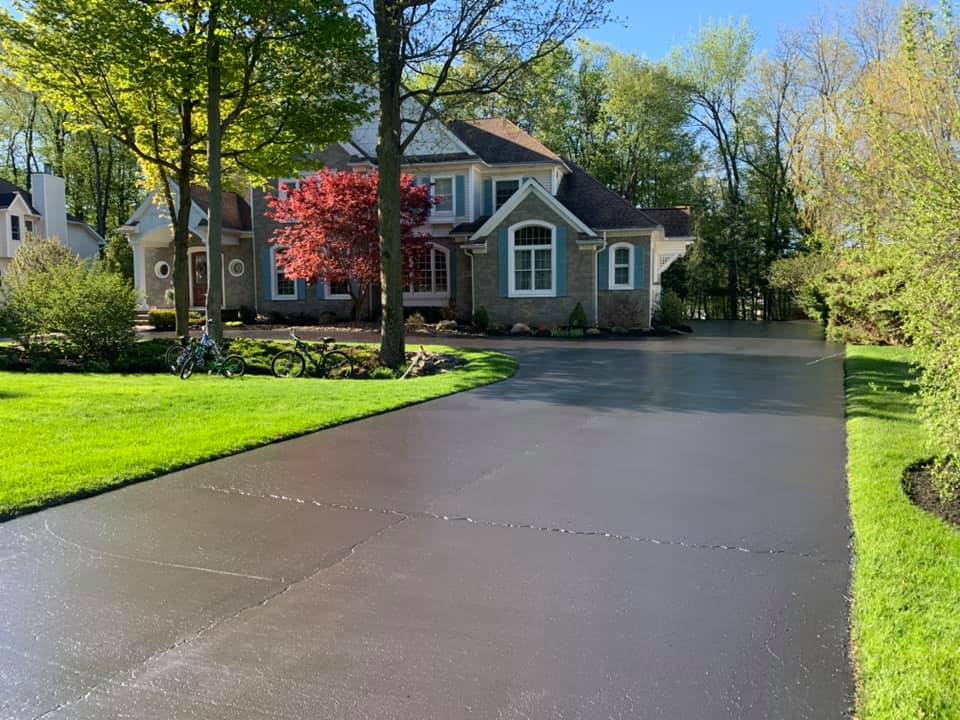Cold Mix Asphalt Vs. Hot Mix Asphalt: Which Is Right for You?

Composition Differences
Cold mix asphalt is generated by emulsifying the asphalt binder with water and an emulsifying agent prior to mixing it with aggregate. The warm mix asphalt manufacturing process entails warming the accumulation and asphalt binder individually prior to integrating them at the asphalt plant.
Additionally, cool mix asphalt has a tendency to be less thick and extra flexible than warm mix asphalt. This flexibility makes it better suited for locations with greater levels of movement, such as driveways or roads with rush hour. On the other hand, hot mix asphalt is understood for its high longevity and resistance to rutting and cracking, making it a recommended selection for highways and high-traffic roadways where long life is critical.
Setup Process Variances
The process of installing cold mix and hot mix asphalt displays noteworthy variances in their demands and procedures. Cold mix asphalt, being a more versatile product, can be applied directly from the bag or container onto the split or harmed location. It needs minimal preparation job, such as cleansing the location and condensing the cool combine with hand tools. This makes it a convenient choice for quick and momentary fixes. In contrast, hot mix asphalt necessitates a much more fancy setup procedure. It includes heating the mixture to high temperatures prior to laying it down on an effectively prepared base. The preparation consists of condensing the base, applying a tack layer, and making use of heavy machinery like pavers and compactors for a sturdy and smooth coating. As a result of the heating requirements, warm mix asphalt setups are usually accomplished by specialists with specific devices, ensuring an extra structurally sound and permanent result.
Durability and Long Life Factors
When thinking about asphalt options, resilience and durability are vital elements to evaluate for long lasting sidewalk performance. Hot mix asphalt (HMA) is recognized for its remarkable toughness and long life.
In regards to long life, HMA usually outmatches CMA due to its exceptional stamina and resistance properties. HMA pavements have anchor a longer service life, needing much less regular fixings and upkeep, which can convert to set you back savings in the long run. Additionally, HMA sidewalks are much more quickly adjustable to fulfill details project requirements, further enhancing their sturdiness.
Price Factors To Consider
Considering the monetary ramifications is an important facet when reviewing the choice in between warm mix asphalt (HMA) and cold mix asphalt (CMA) for pavement jobs. While the initial expense of hot mix asphalt is generally more than that of chilly mix asphalt, HMA commonly provides a more economical solution over time as a result of its premium longevity and longevity. HMA is recognized for its capacity to hold up against rush hour lots and extreme weather, reducing the need for constant repair services and upkeep. On the various other hand, chilly mix asphalt is extra affordable upfront yet might need even more regular patching and resurfacing, resulting in higher maintenance expenses gradually.
In addition to product costs, it's vital to take into consideration the costs associated with installment and upkeep when comparing HMA and CMA. Ultimately, the choice between HMA and CMA should take right into account not just the initial price yet likewise the lasting economic ramifications to establish the most cost-effective alternative for the specific sidewalk task.
Environmental Influence Comparison
Comparison of the ecological impacts between hot mix asphalt (HMA) and cold mix asphalt (CMA) exposes distinctive differences in sustainability techniques. HMA production requires high temperature levels, resulting in boosted energy intake and greenhouse gas exhausts. The procedure additionally releases unstable natural compounds (VOCs) and hazardous air toxins (HAPs) right into the atmosphere. On the other Extra resources hand, CMA is generated and used at lower temperatures, decreasing power usage and emissions substantially. The lower manufacturing temperatures of CMA result in reduced gas intake and lower levels of CO2 discharges, making it a much more eco friendly alternative.
Additionally, the usage of CMA usually includes recycling existing asphalt pavement, advertising source conservation and minimizing the quantity of waste sent out to land fills. By deciding for CMA over HMA, road building projects can add favorably to environmental preservation initiatives.
Verdict
Finally, the selection in between cool mix asphalt (CMA) and warm mix asphalt (HMA) depends upon various aspects such as structure, installment procedure, sturdiness, durability, cost, and ecological influence. asphalt repair. While CMA provides a cost-efficient and fast option for small repair work, HMA ensures superior toughness and longevity for heavy traffic locations. Take into consideration these elements very carefully to establish which sort of asphalt is the right option for your paving needs

Thinking about the monetary effects is a vital element when assessing the selection in between warm mix asphalt (HMA) and cool mix asphalt (CMA) for sidewalk jobs. While the preliminary price of warm mix asphalt is typically higher than that of chilly mix asphalt, HMA commonly supplies an extra affordable service in the lengthy run due to its premium longevity and durability. angle parking.Contrast of the ecological effects between warm mix asphalt (HMA) and cold mix asphalt (CMA) reveals unique distinctions in sustainability methods.In verdict, the choice in between cool mix asphalt (CMA) and warm mix asphalt (HMA) depends on various factors such as composition, installment visit site process, durability, long life, price, and ecological impact